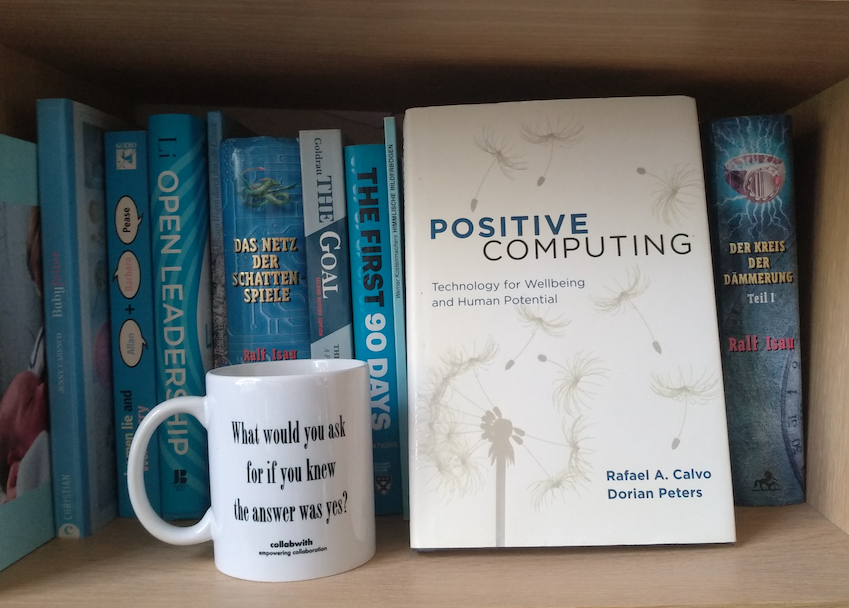We are in August and we are reading again the MUST-READ books about positive computing and how to integrate positive emotions in our technology development. It has been written in 2014, is still relevant and is still important to remember and to understand how technology, artificial intelligence and other applications could have a positive or a negative impact in our lives, and this book is a manual of the secret sauce of making technology for good, for good of people, for good of the planet, and good for our society.
BOOK OF THE MONTH
“I have this book since 2014 and I was fascinating about this approach who merges positivity, wellbeing, emotional intelligence, software development and technology design. It’s a MUST read in our current times and reflect in our use and design of technology. Personally, I am reading it again. Are you with me?” Jara Pascual, CEO Knowco Collabwith.
About the book
On the eve of Google’s IPO in 2004, Larry Page and Sergey Brin vowed not to be evil. Today, a growing number of technologists would go further, trying to ensure that their work actively improves people’s lives. Technology, so pervasive and ubiquitous, has the capacity to increase stress and suffering, but it also has the less-heralded potential to improve the wellbeing of individuals, society, and the planet. In this book, Rafael Calvo and Dorian Peters investigate what they term “positive computing” – the design and development of technology to support psychological wellbeing and human potential.
Calvo and Peters explain that technologists’ growing interest in social good is part of a larger public concern about how our digital experience affects our emotions and our quality of life -which itself reflects an emerging focus on humanistic values in many different disciplines. Synthesizing theory, knowledge, amd empirical methodologies from a variety of fields, they offer a rigorous and coherent foundational framework for positive computing. Sidebars by experts from psychology, neuroscience, human-computer interaction, and other disciplines supply essential context. Calvo and Peters examine specific wellbeing factors, including positive emotions, self-awareness, mindfulness, empathy, and compassion, and explore how technology can support these factors. Finally, they offer suggestions for future research and funding.
About the authors
Rafael A. Calvo is Associate Professor of Software Engineering and Director of Positive Computing Lab at the University of Sydney. Dorian Peters is user experience designer and online strategist for the Faculty of Education and Social Work at the University of Sydney and Creative Leader of the Positive Computing Lab there.
We will add here the comments and our review during this month of August.
At Collabwith Academy we are hosting an online workshop on 25th October 2020 at 10am CET about How to use Emotional Intelligence for Artificial Intelligence, if you are interested you can find more information here.
You can find our workshops on Emotional Intelligence for Innovation, Entrepreneurship & Collaboration in our Collabwith Academy. And you can watch our webinar on Emotional Intelligence for Innovation Leadership, here.
 Please, write your comment below about your reading, and your review!
Please, write your comment below about your reading, and your review!


